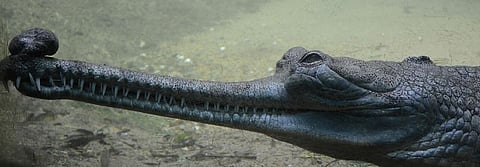

For more than a century, aging has been explained by the rate of metabolism — the faster the body functions and the sooner it reproduces, the shorter the lifespan. But is it so?
Researchers from the Queen’s University Belfast and Tel Aviv University found reasons to doubt the ‘Rate of Living’ theory: They didn’t find any correlation between the rate of living and lifespan.
Their expansive sample study rather found a “huge” impact of global warming on the life expectancy of cold-blooded species such as reptiles and amphibians. A warmer climate indeed shortened the lifespan of such species, pushing them towards faster extinction.
Researchers from the two varsities analysed metabolism of 4,100 land vertebrate species from across the world and didn’t find any effect of the ‘rate of living’ on ageing. According to their release:
Over 100 years old, until now the theory had not been tested at a global scale with all land vertebrates and there were limitations with the range of species the theory was tested on.
The study, published in the journal Global Ecology and Biogeography, found the rate of ageing “in cold-blooded organisms including amphibians and reptiles are linked to high temperatures”.
The researchers have now proposed an alternative hypothesis to the ‘rate of living’: The hotter the environment is, the faster the rate of living that in turn leads to more accelerated aging and a shorter lifespan.
The findings can be critical to understanding factors contributing to extinctions, especially at the modern times of a worldwide decline in biodiversity, said Daniel Pincheira-Donoso — a co-author of the study and a lecturer in ‘Evolution and Macroecology’ at the School of Biological Sciences at Queen’s University.
“Now we know that the life-expectancy of cold-blooded vertebrates is linked to environmental temperatures, we could expect to see their lifespans further reduced as temperatures continue to rise through global warming,” Pincheira-Donoso said.
The team’s findings mean that cold-blooded species are more vulnerable to global warming and faster extinction. “Indeed, if increasing ambient temperatures reduces longevity, it may make these species more prone to go extinct as the climate warms,” said Gavin Stark, a lead author of the study at Tel Aviv University.